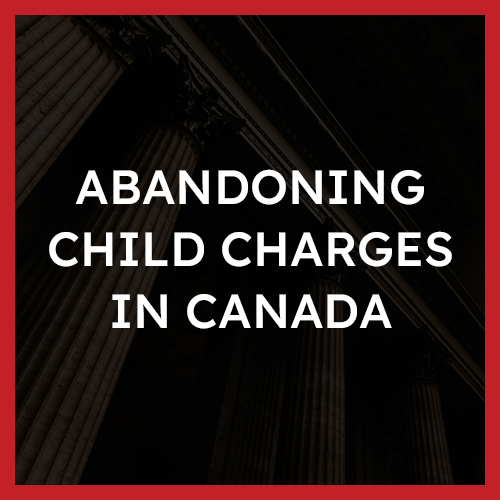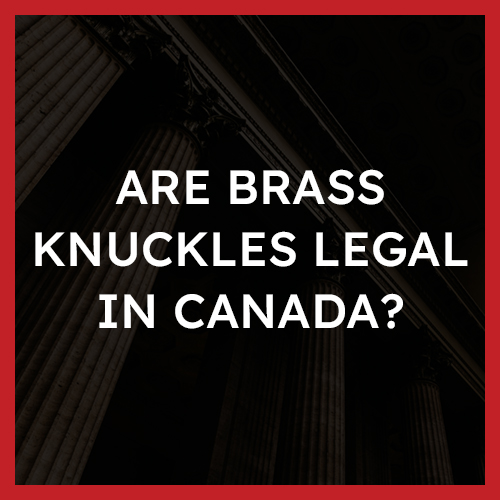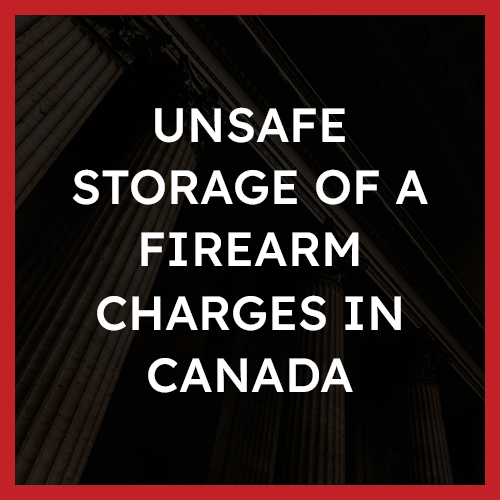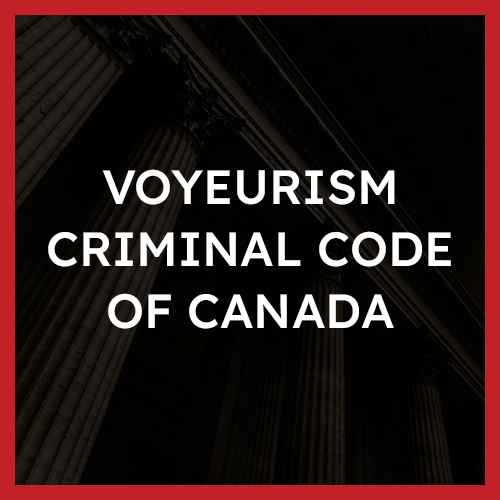Abandoning Child Laws in Canada Explained

An abandoning child charge materializes when an individual jeopardizes a child’s life or gravely compromises their well-being. The legal recourse for such cases lies in s. 218, wherein an individual can face charges even in temporary circumstances such as if they have left a child unattended in a vehicle or residence, or when a parent is unwilling or unable to provide proper care, and leaves their child to be discovered by another party.
An abandoning child charge is a hybrid offence with a Crown election. This means that depending on the circumstances of your case the Crown can elect to proceed by indictment or summarily. If an accused is prosecuted by indictment, there is a Defence election of court under s. 536(2) of the Criminal Code.
Examples
Some examples of an abandoning child charge may include the following:
- Leaving a child unattended in a hot vehicle;
- Abandoning a child on the street to be found by another party;
- Leaving a child unattended where there is a risk of injury and abduction; and
- A daycare worker leaving a group of children unattended in an area that jeopardizes their health and safety.
Defences
The defences available to an abandoning child charge are entirely dependent on the facts of your case.
However, some defences to an abandoning a child offence may include:
- The accused was wrongly identified as the person who abandoned the child;
- The child was aged 10 or older;
- It was necessary to leave the child unattended due to an emergency situation which left the person with no other viable option but to temporarily leave the child; and
- The person who abandoned the child was forced or coerced to leave the child unattended.
Punishment
The offence of abandoning a child is a hybrid offence, which entails a maximum punishment as follows:
- Imprisonment for 5 years of the Crown elects to proceed by indictment.
- Imprisonment for 18 months if prosecuted by summary conviction.
The penalties associated with an abandoning child conviction hinge on the particulars of your case. In instances where the offence is committed and subsequently prosecuted through indictment, the potential punishment can encompass a maximum of 5 years of imprisonment. Notably, there exist no stipulated minimum penalties for this transgression. Importantly, an accusation of abandoning a child carries substantial ramifications, extending to profound repercussions on both present and prospective employment prospects, as well as one’s immigration standing.
Overview of the Offence
According to s.218 of the Criminal Code:
Abandoning child
272(1) Every one who unlawfully abandons or exposes a child who is under the age of ten years, so that its life is or is likely to be endangered or its health is or is likely to be permanently injured,
- Is guilty of an indictable offence and liable to imprisonment for a term not exceeding five years; or
- Is guilty of an offence punishable on summary conviction.
The Guilty Act (Actus Reus)
The actus reus for an abandoning child charge under s. 218 is established by proof, beyond a reasonable doubt, of the following:
- The accused at a specified date and time, in the correct jurisdiction, endangers a child’s health or life; or
- The accused abandons or exposes a child, so their child’s life or health is endangered.
The case of R v Holzer provided that the actus reus was made out for the offence of abandoning a child when a 12-month-old child was left in a vehicle for 3 hours during negative 14-degree temperatures. R v de Freitas held that the Crown must prove more than the potential for endangerment and that the child was actually endangered.
The Guilty Mind (Mens Rea)
The mens rea for an abandoning child charge under s. 218 includes proving, beyond a reasonable doubt, that:
- The accused knew or subjectively knew, that they were abandoning or endangering the child.
The mens rea for an abandoning child charge requires subjective fault. A subjective mens rea offence is concerned about what is going on in the individual’s mind at the time that the guilty act occurs. When an individual is charged with a subjective mens rea crime, the Crown must satisfy the trier of fact that the accused subjectively intended to commit the prohibited act.
The types of subjective mens rea include the following:
- Intent
- Knowledge
- Wilful blindness
- Recklessness
Intent:
Intent focuses on an individual’s desire to bring about a specific consequence. This means that intent focuses on the accused’s desire to commit the dangerous or guilty act.
In R v Théroux, [1993] 2 SCR 5, it was indicated that “subjective awareness of the consequences can be inferred from the act itself, barring some explanation casting doubt on such inference.”
For example, if a person plans to assault someone and finds a target, that person will possess intent.
Knowledge:
Knowledge relates to the awareness of a fact or circumstance. This means that knowledge focuses on what the accused knew, not what the accused should have known.
For example, if a person gets mad at someone and pushes them, inflicting harm may not have been their primary goal. However, if the person was aware that the harm would be a predictable result of the action, then it can be said there was knowledge.
Wilful Blindness:
Wilful blindness is a substitute for knowledge as it attributes knowledge to individuals as it arises in circumstances where the accused virtually knows what is happening, but they intentionally look the other way.
However, it is important to note that, as indicated in R v Briscoe, 2008 ABCA 327, wilful blindness “serves to override attempts to self-immunize against criminal liability by deliberately refusing to acquire actual knowledge” and the courts are indicating that the accused should have known something.
For example, if you have a strong suspicion that you are engaged in criminal activity, but you prevent yourself from learning about the situation, you are wilfully blind.
Recklessness:
Recklessness focuses on the accused’s awareness and his irresponsibility. It is when an accused is aware that the conduct could bring about the prohibited criminal act, but they persist despite the risk.
For example, if you are drinking and driving and you cause injury to another because of this, you are reckless.
Defences
How to Beat an Abandoning Child Charge
Every case is different. The availability and strength of any defence depend entirely on the specific facts of your case. The strength of any available defence rests on the evidence against you and the precise details of the allegations. However, the following are some common defences that may be used when fighting an abandoning child charge:
Factual innocence
A strong defence against an abandoning child charge is to maintain that you are factually innocent. If you can show that the facts and the evidence do not support that you abandoned a child or caused them to be endangered, then you may have a defence that you were factually innocent.
Age of the Child
If the child who was endangered or abandoned is 10 years of age or older, then their age can serve as a potential defence.
Mistake in Identity
Depending on the circumstances of your case, a possible defence to an abandoning a child charge may be to raise an identity defence. In this case, for this defence to be raised successfully, you will have to prove that you were not the person who abandoned or exposed the child.
Any applicable Charter defences
The Charter sets out your rights and freedoms before and after your arrest. If the police fail to abide by these rights deliberately or inadvertently, it could aid in your defence. If any of your Charter rights have been violated before or after your arrest, you may be able to have some or all of the evidence that the Crown is relying on to secure a conviction excluded under s. 24(2) of the Charter.
Punishments
The Criminal Code provides for a possible maximum term of five years imprisonment for those convicted of an abandoning child charge.
Persons found guilty of abandoning a child may be eligible for sentencing entailing a discharge, suspended sentence, stand-alone fine, custody, custodial sentence, or custody with a fine or probation.
Frequently Asked Questions
What is the penalty for child abandonment in Canada?
In Canada, the penalty for child abandonment is governed by section 218 of the Criminal Code. According to this provision, if a person unlawfully abandons or exposes a child who is under the age of ten years, so that their life is or is likely to be endangered or their health is or is likely to be permanently injured, they can be charged under this section. The penalty for such an offence can result in a maximum term of imprisonment of five years, if the offence is classified as an indictable offence. However, it’s important to note that specific penalties can vary based on the circumstances of the case, judicial discretion, and the jurisdiction in which the charge is brought. Courts take into account factors such as the degree of endangerment, intent, and the overall impact on the child’s well-being when determining an appropriate sentence. Legal representation and understanding the nuances of the law are crucial when dealing with child abandonment charges in Canada.
What is considered child abandonment in Canada?
Child abandonment in Canada encompasses situations where a caregiver or guardian abandons their responsibility to provide proper care, supervision, and protection for the child’s well-being. Child abandonment can take various forms, such as leaving a child unattended in dangerous environments, failing to meet their basic needs, or neglecting to provide necessary medical attention. Canadian law emphasizes the importance of safeguarding children from harm and ensuring their welfare, making child abandonment a serious legal concern that carries potential criminal consequences. The precise definition and legal interpretation of child abandonment can vary, but the essence lies in the act of jeopardizing a child’s safety or health through neglectful actions or omissions.
Is child neglect a crime in Canada?
Yes, child neglect is considered a crime in Canada. Child neglect involves failing to provide proper care, supervision, and basic necessities for a child’s well-being, which can result in physical, emotional, or mental harm. While there isn’t a specific charge titled “child neglect” in the Criminal Code, various criminal offences cover different aspects of neglectful behaviour towards children. These offences include child abandonment under section 218, failure to provide the necessaries of life under section 215, and child endangerment under section 237. Canadian law places a high priority on protecting children from harm and ensuring their welfare, and individuals who engage in neglectful behaviour that endangers a child’s safety or well-being can face serious legal consequences under these provisions.
About The Author
Ask A Question
We endeavor to respond to questions within 24 hours. If your matter is urgent, please call our office or submit a request for a free consultation.







